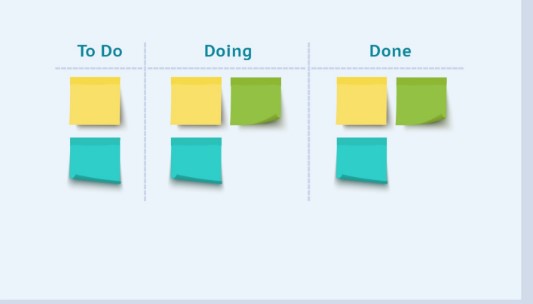Using Kanban to increase productivity
A common reason why people fail to make progress with key tasks is because they procrastinate. This often involves ignoring an unpleasant (usually important) task in favour of one that is low priority but more enjoyable. Procrastination may also mean delaying a decision that needs to be made.
Typical procrastination behaviours are leaving items on to-do lists for a long time, starting high-priority tasks and then moving on to other things, or waiting until you feel in the ‘right mood’ to do something. Checking emails is a common procrastination technique; this can give the illusion of productivity while swallowing up hours of your time each day. Procrastination is damaging as people not only fail to meet their goals, but feel unproductive, guilty and ashamed.
The first step in avoiding procrastination is to recognise that you are doing it and find out why. One of the most common reasons is that the task seems daunting, or we fear we will fail. People also use procrastination unconsciously as a form of rebellion or a way of ‘getting back’ at others. To overcome procrastination, it is important to set simple and achievable goals (rather than vague plans) and, wherever possible, to eliminate distractions. The Japanese technique of Kanban can help you do this.
Using Kanban
Kanban, a Japanese term meaning billboard or signboard, is a production management system that aims to minimise waste and maximise efficiency. Benson and DeMaria Barry (2011) have translated Kanban into a personal scheduling system that restricts work-in-progress to enhance productivity and avoid burnout.
Put simply, Kanban involves limiting (say, to three or four) the number of tasks you are working on at any one time. When you have completed one task, you can introduce another – and so on.
Use Post-it notes and a whiteboard with three columns – ‘To do’, ‘Doing’, ‘Done’ – and move each task along as it progresses. You can also add a ‘Waiting’ column for future tasks (or, if urgent, allocate them to other people). Larger tasks can be broken down into manageable chunks. Ideally, finishing one task before completing another will become a habit.

For more information, see here. Kanban boards can also be set up online, see here
 Learning Organisation
Learning Organisation